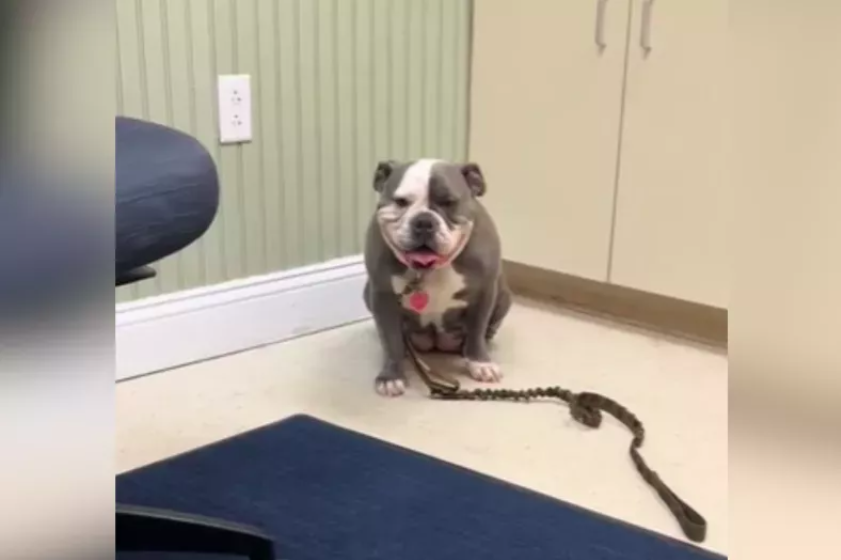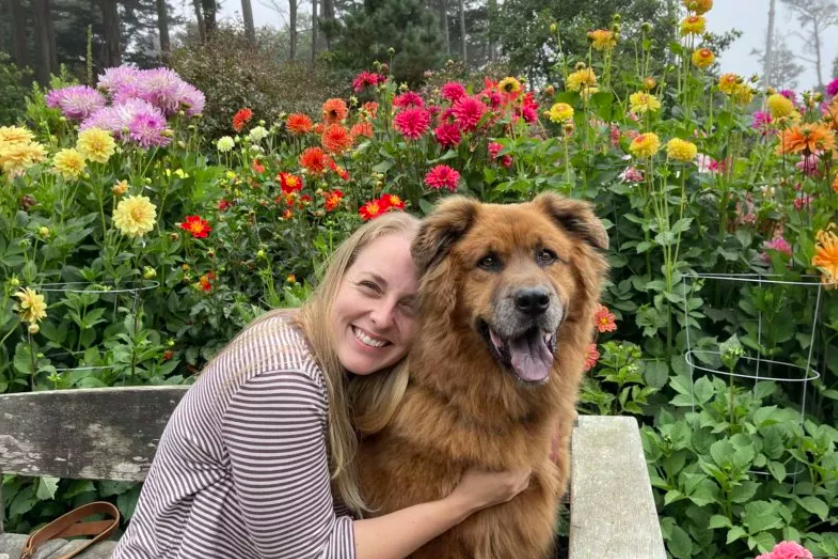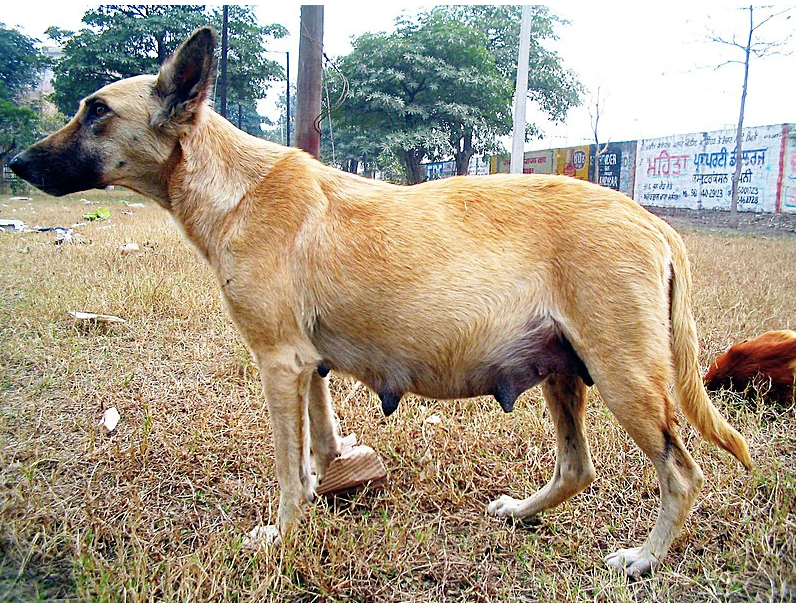Trending Pet Stories
Dog Trainer Reveals How Your Pup Is Manipulating You: The Shocking Truth

Dog Trainer Reveals How Your Pup Is Manipulating You: The Shocking Truth
Dogs are often seen as loyal and loving companions, but did you know that they can also be master manipulators? Recent revelations by a prominent dog trainer have shed light on the subtle ways in which our furry friends can control our behavior to get what they want. This article will explore the fascinating world of canine manipulation, providing insights and tips to help you better understand and manage your dog’s behavior.
Understanding Canine Manipulation
What Is Canine Manipulation?
Canine manipulation refers to the various behaviors and tactics that dogs use to influence their owners’ actions. These behaviors are often learned through reinforcement and can range from subtle cues to more overt actions. Understanding these tactics is crucial for maintaining a healthy and balanced relationship with your pet.
Why Do Dogs Manipulate Their Owners?
Dogs manipulate their owners for several reasons:
- To Get Attention: Dogs crave attention and will use various behaviors to ensure they get it.
- To Receive Treats or Rewards: Manipulative behaviors are often reinforced with treats or praise.
- To Avoid Unwanted Activities: Dogs may act out to avoid things they don’t like, such as baths or vet visits.
Common Manipulative Behaviors in Dogs
1. The Sad Eyes
One of the most common manipulative behaviors is the “sad eyes” look. Dogs have learned that by giving their owners a sad or pleading look, they can evoke sympathy and often get what they want. This behavior is deeply rooted in the dog’s ability to read and respond to human emotions.
2. Barking and Whining
Barking and whining are effective ways for dogs to get their owners’ attention. If these behaviors are consistently rewarded with attention or treats, dogs will quickly learn to use them to manipulate their owners.
3. Refusing to Eat
Some dogs will refuse to eat their food to get their owners to give them more desirable options. This can lead to a cycle where the dog only eats what they want, rather than what is healthy for them.
4. Jumping and Pawing
Jumping up on people or pawing at them is a way for dogs to demand attention and physical contact. While it may seem cute at first, it can become problematic if not managed properly.
5. Ignoring Commands
Ignoring commands is a form of passive manipulation. Dogs may pretend not to hear or understand commands if they know it will result in their owners giving in and not enforcing the rule.
How to Recognize Manipulative Behavior
1. Consistent Patterns
Look for consistent patterns in your dog’s behavior. If they always act a certain way to get a specific response from you, it’s likely they are manipulating you.
2. Changes in Behavior
Sudden changes in behavior, such as increased whining or refusal to eat, can be signs of manipulation, especially if they coincide with a recent change in how you respond to them.
3. Testing Boundaries
Dogs often test boundaries to see what they can get away with. If your dog is constantly pushing limits, they may be trying to manipulate you into changing the rules.
Managing Manipulative Behavior
1. Consistent Training
Consistency is key in training and managing manipulative behavior. Ensure that you are consistent in how you respond to your dog’s actions and maintain firm boundaries.
2. Positive Reinforcement
Use positive reinforcement to reward good behavior rather than giving in to manipulative tactics. Reward your dog when they follow commands and behave appropriately.
3. Ignore Negative Behavior
Ignoring manipulative behaviors can be an effective way to reduce them. By not giving your dog the attention they seek when they act out, you can discourage these behaviors.
4. Set Clear Boundaries
Establish clear boundaries and stick to them. Let your dog know what is and isn’t acceptable behavior, and consistently enforce these rules.
5. Seek Professional Help
If you are struggling to manage your dog’s manipulative behavior, consider seeking help from a professional dog trainer. They can provide personalized guidance and support to address specific issues.
The Role of Human Behavior
How Owners Contribute to Manipulative Behavior
Owners often unintentionally reinforce manipulative behavior. By giving in to their dog’s demands, they teach their dog that these behaviors are effective. Understanding your role in this dynamic is crucial for changing it.
Changing Your Behavior
To effectively manage your dog’s manipulative behavior, you may need to change your own behavior. Be mindful of how you respond to your dog and make a conscious effort to reinforce positive behaviors instead of negative ones.
Building a Healthy Relationship with Your Dog
Understanding Your Dog’s Needs
A healthy relationship with your dog is built on understanding their needs and providing appropriate care and attention. Make sure your dog is getting enough physical exercise, mental stimulation, and social interaction.
Effective Communication
Effective communication is essential for managing your dog’s behavior. Use clear and consistent commands, and make sure your dog understands what is expected of them.
Creating a Positive Environment
Create a positive and supportive environment for your dog. This includes providing a comfortable living space, regular grooming, and a balanced diet.
Regular Training Sessions
Regular training sessions are important for reinforcing good behavior and preventing manipulation. Make training a fun and rewarding experience for your dog.
Conclusion
Understanding and managing canine manipulation is essential for a healthy and balanced relationship with your dog. By recognizing manipulative behaviors and implementing consistent training and boundaries, you can ensure that your dog behaves appropriately and respects your authority. Remember, a well-trained dog is a happy dog, and a happy dog makes for a happy owner.
Frequently Asked Asked Questions (FAQs)
How can I tell if my dog is manipulating me?
Look for consistent patterns in your dog’s behavior, such as always acting a certain way to get a specific response. Sudden changes in behavior, like increased whining or refusal to eat, can also be signs of manipulation.
What should I do if my dog refuses to eat?
If your dog is refusing to eat, try to determine if it’s a form of manipulation. Stick to a regular feeding schedule and avoid giving in to their demands for different food. If the behavior persists, consult your veterinarian to rule out any medical issues.
How do I stop my dog from barking for attention?
Ignore the barking and avoid giving your dog the attention they seek. Reward them with attention and treats when they are quiet and calm. Consistent training and reinforcement are key to managing this behavior.
Can professional training help with manipulative behavior?
Yes, professional training can be very effective in managing manipulative behavior. A professional dog trainer can provide personalized guidance and support to address specific issues and help you establish firm boundaries.
How can I prevent my dog from jumping on people?
Train your dog to sit or stay when greeting people. Use positive reinforcement to reward them for staying calm and not jumping. Consistently enforce this behavior and ensure all family members and visitors follow the same rules.
We appreciate you for taking the time to read this article!
Finally, we hope you found this article interesting? And what do you think about ”Dog Trainer Reveals How Your Pup Is Manipulating You: The Shocking Truth!?”
Please feel free to share or inform your friends about this article and this site, thanks!
And let us know if you observe something that isn’t quite right.
For more information on how dogs manipulate their owners and effective training tips, visit the original article on Newsweek: Hysterics as Dog Trainer Reveals How Pup Is Manipulating Owners.
Trending Pet Stories
Surprising Vet Visit: American Bulldog Becomes a Mom in Unexpected Twist

Surprising Vet Visit: American Bulldog Becomes a Mom in Unexpected Twist
When TikTok user @a.niyah15 rushed her 3-year-old American bulldog, Sky, to the vet due to unusual lethargy, she wasn’t prepared for the revelation awaiting her. What seemed like a health emergency quickly turned into a heartwarming surprise: Sky was pregnant and about to give birth to a single puppy! This astonishing story has since gone viral, captivating millions of pet lovers worldwide.
What Led to the Vet Visit?
Sky’s owner noticed her usually energetic and playful American bulldog behaving uncharacteristically. Concerned about her health, she decided to take Sky to the vet. At the clinic, as Sky’s owner explained her symptoms, the situation took an unexpected turn. Sky’s “water” broke, and the veterinarian confirmed she was in active labor. To everyone’s amazement, Sky delivered one healthy puppy during the visit.
The Viral TikTok Story
The heartwarming moment was captured and shared on TikTok by Sky’s owner under the handle @a.niyah15. The video begins with a nervous Sky at the vet, accompanied by the overlay text: “POV: You bring your dog to the vet because she seems very lethargic.” The clip then transitions to footage of Sky giving birth and bonding with her newborn puppy.
The video quickly gained traction, amassing over 1.9 million views and countless comments. Sky’s confusion and eventual joy as a new mother struck a chord with viewers, many of whom applauded her owner for capturing such a touching moment.
@a.niyah15 The biggest surprise of the year 😂😭He is now 3 weeks old and we are trying to find unique/cute puppy names #americanbully #bullybreeds #puppy #dogpregnancy #surpriseshawtyy #SkyLovey
Why Did Sky Have Only One Puppy?
While it’s rare for dogs to have single-puppy litters, it’s not unheard of. Several factors can influence litter size:
- Breed and Size: Smaller breeds and certain breeds like American bulldogs may produce smaller litters.
- Age and Health: A dog’s age, overall health, and reproductive history play a significant role.
- Inbreeding: Genetic factors such as inbreeding can also result in smaller litters.
Sky’s Post-Birth Experience
After the birth, Sky was seen cuddling her newborn, a tiny male puppy. In a follow-up TikTok post, her owner shared updates of the pair bonding and the puppy’s milestones—from feeding to taking his first steps and emitting adorable high-pitched barks.
Sky’s owner expressed gratitude for the overwhelming support from viewers. Among the many comments were suggestions for naming the puppy. Some popular ideas included:
- Uno: Highlighting the puppy’s status as the only one.
- Solo: A nod to the unique birth experience.
- Juan: Playfully referencing “the Juan and only.”
How Did Sky’s Pregnancy Go Undetected?
Many commenters were puzzled about how Sky’s pregnancy had gone unnoticed, even during regular veterinary checkups. This phenomenon, known as a “cryptic pregnancy,” can occur when:
- Minimal Physical Changes: Some dogs don’t show significant weight gain or other noticeable signs.
- Small Litter Size: With only one puppy, physical changes may be less pronounced.
- Misinterpreted Symptoms: Lethargy or subtle behaviors might not immediately indicate pregnancy.
Sky’s case underscores the importance of thorough examinations, especially if a pet exhibits unusual behavior.
The Naming Ceremony
In a charming twist, Sky’s owner decided to let the puppy choose his own name. Three names were written on pieces of paper, and the puppy eventually walked over to the paper labeled “Capo.” The unique naming process delighted viewers, cementing Capo’s place in the family.
Lessons for Pet Owners
Sky’s story offers several valuable insights for pet owners:
- Monitor Unusual Behaviors: Changes in energy levels, appetite, or behavior warrant a vet visit.
- Regular Checkups: Even routine exams can sometimes miss subtle conditions like cryptic pregnancies.
- Prepare for Surprises: Pets can surprise us in the most unexpected ways, reminding us of the joys and responsibilities of pet ownership.
Conclusion
Sky’s unexpected journey into motherhood highlights the unpredictable yet heartwarming nature of pet ownership. Her story has touched millions, reminding us of the deep connections we share with our furry companions. Whether it’s a routine vet visit or an extraordinary event like Sky’s, our pets continue to amaze and inspire us.
FAQs About Dog Pregnancy and Lethargy
Can dogs have cryptic pregnancies?
Yes, cryptic pregnancies occur when symptoms are mild or go unnoticed. Small litter sizes can also contribute to undetected pregnancies.
How many puppies do American bulldogs typically have?
American bulldogs generally have 4-8 puppies per litter, but factors like health and genetics can result in smaller or larger litters.
What should I do if my dog seems lethargic?
Lethargy can signal various issues, from minor illnesses to serious conditions. Always consult a veterinarian if your dog’s energy levels change drastically.
Is it safe to breed dogs at home?
Breeding dogs requires careful planning and knowledge. Consult a veterinarian to ensure the health and safety of the mother and puppies.
How can I bond with a newborn puppy?
Provide gentle handling, ensure a warm and secure environment, and prioritize the mother’s well-being to foster a strong bond.
We appreciate you for taking the time to read this article!
Finally, we hope you found this article interesting? And what do you think about ”Surprising Vet Visit: American Bulldog Becomes a Mom in Unexpected Twist!?”
Please feel free to share or inform your friends about this article and this site, thanks!
And let us know if you observe something that isn’t quite right.
For more heartwarming pet stories, visit Newsweek Pets.
Trending Pet Stories
The Vet Gave My Dog 20 Days: Making the Heartbreaking Decision to Say Goodbye”

The Vet Gave My Dog 20 Days: Making the Heartbreaking Decision to Say Goodbye
When our pets face serious illnesses, the heartbreak and tough decisions we must make are indescribable. In a poignant tale of love, resilience, and loss, Liz O’Connell shares her journey with Diesel, her 12-year-old Chow Chow mix, who was diagnosed with cancer. Through her story, she opens a conversation about dealing with grief, making end-of-life decisions, and cherishing every precious moment with our furry companions.
A Shocking Diagnosis: Valley Fever or Cancer?
Diesel’s decline began subtly. Liz noticed he was skipping meals and seemed slightly off. It wasn’t until he exhibited concerning symptoms like bloating and retching that Liz and her husband rushed him to an emergency animal hospital late one night.
At first, the vet suspected valley fever, a fungal infection common in desert regions like Arizona. However, X-rays told a different story. They revealed a large mass near Diesel’s heart, prompting further testing. A week later, the dreaded call confirmed the diagnosis: hemangiosarcoma, a deadly and fast-growing cancer that commonly affects dogs. This cancer had gone undetected during previous health checks and was now aggressively threatening Diesel’s life.
Understanding Hemangiosarcoma: The Silent Killer
What Is Hemangiosarcoma?
Hemangiosarcoma is a malignant cancer that arises in blood vessel linings. It is known as a “silent killer” because its symptoms often remain hidden until it’s too late.
Common Symptoms
- Sudden lethargy
- Loss of appetite
- Difficulty breathing
- Bloated abdomen
- Collapse or fainting spells
The Grim Statistics
In the U.S., 300,000 dogs succumb to hemangiosarcoma annually, accounting for up to 7% of canine cancer deaths. Its aggressive nature and lack of early warning signs make it one of the most devastating diagnoses for pet owners.
The Heartbreaking Decision: When Is It Time?

Liz faced the unimaginable choice of deciding when to let Diesel go. Her veterinarian explained the harrowing potential outcomes if the cancer progressed further—internal bleeding or heart failure, both of which could cause immense suffering.
Tips for Making the Right Decision
- Monitor Quality of Life: Look for changes in behavior, appetite, and physical activity.
- Consider Pain Management: Observe signs of pain or discomfort.
- Consult Your Veterinarian: Professional advice can guide you through options and timing.
- Listen to Your Pet: Sometimes, their demeanor shows they’re ready to let go.
Cherishing Diesel’s Final Days
Liz took time off from work to ensure Diesel’s last days were filled with joy and love. Together, they revisited favorite parks, indulged in delicious treats like pizza and pup cups, and savored quiet moments at home. His feline siblings, Willow and George, stayed close, offering comfort in their own unique ways.
How to Create Lasting Memories
- Capture Moments: Take photos and videos to cherish forever.
- Spoil Them: Treat them to their favorite foods and activities.
- Focus on Comfort: Surround them with their favorite blankets, toys, and familiar faces.
- Savor the Routine: Even small, daily rituals can become treasured memories.
The Role of At-Home Euthanasia
To spare Diesel the anxiety of a vet’s office, Liz opted for at-home euthanasia. This compassionate service allows pets to spend their final moments in familiar surroundings, surrounded by loved ones.
What to Expect During At-Home Euthanasia
- Sedation: The vet administers a sedative to help the pet relax.
- Euthanasia Injection: A second injection gently and painlessly stops the heart.
- Family Support: Owners can remain by their pet’s side throughout, providing comfort and love.
For Liz, the peaceful passing marked a bittersweet farewell. As Diesel took his final breath, she heard birds chirping outside—a poignant moment she interpreted as a sign that Diesel was at peace.
Coping with Pet Grief
The loss of a pet can feel isolating, as society often undervalues the depth of this bond. Liz describes the overwhelming grief she felt after Diesel’s passing but emphasizes the importance of allowing yourself to mourn.
Ways to Navigate Pet Grief
- Join Support Groups: Share your experiences with others who understand.
- Create a Memorial: Honor your pet with photos, keepsakes, or a dedicated space.
- Write It Out: Journaling can help process emotions and preserve memories.
- Lean on Loved Ones: Talk to friends and family who knew and loved your pet.
- Seek Professional Help: Pet grief counselors can provide valuable support.
Remembering Diesel: A Life Well-Lived
Diesel’s life was one of adventure, love, and resilience. Rescued from neglect, he thrived under Liz and her husband’s care, experiencing everything from cross-country road trips to mornings at coffee shops. His presence brought joy to strangers and unwavering companionship to his family.
Liz reflects on his remarkable journey:
“From a neglected pup tied to a tree to a cherished member of our family, Diesel lived a life full of love and adventure. He will always be remembered for his fluffy tail, his gentle soul, and the countless smiles he brought to everyone he met.”
Final Thoughts
The decision to say goodbye to a beloved pet is one of the hardest any owner will face. Liz O’Connell’s story reminds us of the profound love we share with our animals and the importance of cherishing every moment. While the pain of loss is inevitable, the memories and joy they bring will last a lifetime.
FAQs About Pet Euthanasia and Grief
How do I know it’s time to say goodbye to my pet?
When your pet’s quality of life diminishes significantly—showing signs of pain, discomfort, or loss of interest in daily activities—it may be time to consider euthanasia.
What is at-home euthanasia, and how do I arrange it?
At-home euthanasia is a service where a veterinarian comes to your home to provide a peaceful passing for your pet. Contact your vet or search online for specialized providers in your area.
How long does it take to grieve a pet’s loss?
Grief has no timeline. Some people may start to heal within weeks, while others take months or years. Allow yourself to grieve at your own pace.
Can other pets in the home sense the loss?
Yes, pets often pick up on changes in the household and may exhibit signs of grief, such as lethargy or changes in behavior.
How can I honor my pet’s memory?
You can create a scrapbook, plant a tree in their honor, donate to an animal charity, or simply share their story with others to celebrate their life.
We appreciate you for taking the time to read this article!
Finally, we hope you found this article interesting? And what do you think about ”The Vet Gave My Dog 20 Days: Making the Heartbreaking Decision to Say Goodbye”!?”
Please feel free to share or inform your friends about this article and this site, thanks!
And let us know if you observe something that isn’t quite right.
Original Article: Newsweek – The Vet Gave My Dog 20 Days
Trending Pet Stories
Oldest Dog at Shelter Finds Joy With Pup Cup While Waiting for His Final Home

Oldest Dog at Shelter Finds Joy With Pup Cup While Waiting for His Final Home
A Senior Dog’s Heartwarming Story of Resilience and Love
The story of Cotton Eyed Joe, a 12-year-old Chihuahua mix, is melting hearts worldwide. Once a stray, Cotton Eyed Joe was brought into a shelter where he waited for an end-of-life foster home. Despite his challenging circumstances, this senior pup’s joyful spirit remains unbroken. His story highlights the resilience of animals and the deep bond humans share with their pets.
A Special Day for Cotton Eyed Joe
An Outing Filled With Love
To bring attention to Cotton Eyed Joe’s plight, shelter volunteer Julie Saraceno organized a special day out. She dressed him in a cozy Christmas sweater, and the two enjoyed a leisurely stroll together.
As part of the outing, Cotton Eyed Joe was treated to a car ride, ending with a classic favorite—a pup cup, a small whipped cream treat for dogs. Saraceno captured the touching moment in a now-viral video on Instagram, which she captioned:
“POV: You promise a shelter dog an amazing day out and hope that posting it will find him an end-of-life foster.”
Why It Was More Than Just a Treat
This small gesture symbolized more than just a day of fun. It gave Cotton Eyed Joe a chance to feel special and loved while showing potential foster families the beauty of caring for a senior dog.
The Challenges Senior Dogs Face in Shelters
Medical Needs but a Happy Spirit
Like many senior dogs, Cotton Eyed Joe has his share of health challenges, including a grade 3-4 heart murmur and the need for kidney-support food. Despite these, he is described as a loving, happy pup who enjoys snuggling in warm sweaters and resting by the staff’s side.
Senior Dogs: The Forgotten Souls in Shelters
Senior dogs are often overlooked in shelters, with many adopters opting for younger, more energetic pets. Yet, these older animals often have the most gratitude and love to give. Cotton Eyed Joe’s story is a reminder of the joy senior pets can bring.
View this post on Instagram
Pet Homelessness in the U.S.: A Growing Concern
Staggering Statistics
According to estimates, over 6.3 million pets enter U.S. shelters annually, averaging 17,260 pets every day. While many find new homes, approximately 920,000 pets are euthanized annually due to a lack of resources and space.
Senior dogs like Cotton Eyed Joe are particularly vulnerable. They face additional challenges in finding homes due to their age and potential medical needs.
A Happy Ending for Cotton Eyed Joe
Fortunately, Cotton Eyed Joe’s story took a happy turn. Shortly after Saraceno’s video went viral—garnering over 34,300 views and more than 5,100 likes—a compassionate foster family stepped forward. Now, this sweet pup can enjoy his remaining days in a loving home, free from worry.
How Social Media Helps Shelters and Senior Pets
Social media has become a vital tool for shelters, allowing them to showcase animals in need. Viral videos like Cotton Eyed Joe’s not only generate awareness but also inspire action, encouraging potential adopters to consider overlooked pets.
Why Adopt or Foster Senior Dogs?
1. Unmatched Gratitude
Senior dogs often show immense appreciation for the care they receive, forming deep emotional bonds with their adopters.
2. Easier to Manage
Older dogs are typically calmer and already trained, making them easier to integrate into a home.
3. Giving Back
Providing an end-of-life home for a senior dog is an act of kindness, ensuring they spend their final days surrounded by love.
Conclusion
Cotton Eyed Joe’s story is a touching reminder of the love and resilience of senior shelter pets. Thanks to a volunteer’s kindness and the power of social media, he found the perfect home for his golden years. Stories like his encourage us to look beyond age or medical conditions when choosing pets, focusing instead on the love and joy they bring into our lives.
FAQs About Adopting Senior Dogs
Are senior dogs harder to care for?
Senior dogs may have medical needs, but many are manageable with proper care. They’re also calmer, requiring less physical activity than younger dogs.
How can I help senior dogs in shelters?
You can adopt or foster, donate to shelters, or volunteer your time to help promote adoptable senior pets.
What are the benefits of fostering senior dogs?
Fostering provides a temporary home for senior dogs, offering them comfort and love while they await permanent placement.
How can social media help shelter pets?
Sharing posts about adoptable animals increases visibility, potentially reaching adopters who wouldn’t have seen the pets otherwise.
Are senior pets suitable for families?
Yes! Senior pets often adapt well to family life, offering calm companionship and love.
We appreciate you for taking the time to read this article!
Finally, we hope you found this article interesting? And what do you think about ”Oldest Dog at Shelter Finds Joy With Pup Cup While Waiting for His Final Home!?”
Please feel free to share or inform your friends about this article and this site, thanks!
And let us know if you observe something that isn’t quite right.
Original article: Newsweek – Oldest Dog at Shelter Gets Pup Cup as He Waits for ‘End of Life’ Home
-

 Pet Care2 years ago
Pet Care2 years agoThe Best Dog Collars For 2022
-

 Dogs2 years ago
Dogs2 years agoBichon Frise: The Happy, Playful, and Cuddly Companion
-

 Trending Pet Stories1 year ago
Trending Pet Stories1 year ago2023 ‘World’s Ugliest Dog’ Winner: Scooter’s Tale of Resilience
-

 Animals3 years ago
Animals3 years agoAre There Animals Having Down Syndrome?
-

 Pets2 years ago
Pets2 years agoThe Fascinating World Of The Red Chameleon
-

 Dogs3 years ago
Dogs3 years agoTop 10 Most Popular Dog Breeds According To AKC.
-

 Dogs2 years ago
Dogs2 years agoDogs 5 Weeks Pregnant: A Comprehensive Guide To Canine Pregnancy
-

 Dogs3 years ago
Dogs3 years ago21 Dog Breeds That Resemble Bears Or Teddy Bears!







